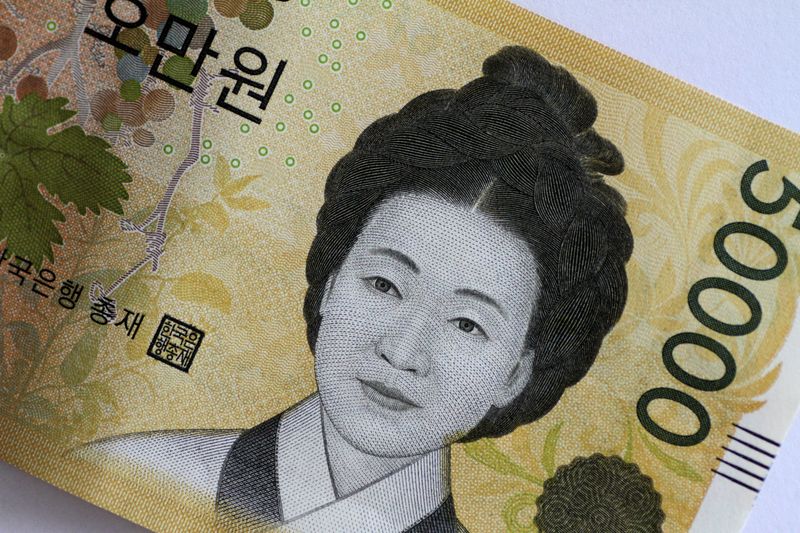 © Reuters. A South Korea won note is seen in this illustration photo May 31, 2017. REUTERS/Thomas White/Illustration/File Photo
© Reuters. A South Korea won note is seen in this illustration photo May 31, 2017. REUTERS/Thomas White/Illustration/File Photo
SEOUL (Reuters) - South Korea is seeking to boost the global profile of its financial markets, which would also mean loosening some of the tight restrictions on the way its currency, the won, is traded.
Here are details about the how the won currently trades and what regulators plan to do to ease some existing restrictions:
HOW THE WON TRADES
As recently as last year, the won could only be directly exchanged with the dollar in the local interbank market or the Chinese yuan - won-yuan transactions could only take place in Seoul or Shanghai.
Only a total of 56 financial institutions based in the country could participate in dollar-won spot trading for just six-and-a-half hours a day, through the two government-registered brokers: Seoul Money Brokerage Services and Korea Money Brokerage Corp.
Currently, outside the onshore trading hours of 0900 to 1550, foreign investors rely on derivatives contracts known as non-deliverable forwards to manage their won exposure, a more costly option.
CHANGES IN THE WORKS
From July this year, the close for onshore dollar-won trading hours and FX swap markets will be extended to 0200 to cover London business hours.
For the first time, foreign banks are allowed to participate as long as they register themselves and follow regulatory obligations imposed on the Registered Financial Institutions (RFIs).
RESTRICTIONS ON FOREIGN BANKS
The registered foreign banks can participate in dollar-won spot, forward and swap trading but they must do this through a licensed Korean FX broker, meaning they are not allowed to directly trade the won between them in the offshore market.
Any dollar-won trading must also be settled through the onshore account, a separate won account they need in the South Korea.
REPORTING OBLIGATIONS
Under South Korea's foreign exchange laws, RFIs are required to report their FX trading details to the Bank of Korea.
Foreign banks that have branches in South Korea can do so through their Seoul operations but those not in the country need to outsource the task to a local bank.
Detailed RFI reports need to show transaction amounts, FX rates, settlement dates, settlement types and brokers used.
Due to those stringent reporting requirement, some may choose to continue trading through the non-deliverable forwards market.

